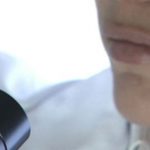The Supreme Court rules on a Key Question for Product Patent in the Pharmaceutical Sector
- 28 February 2011
- Articles
In its sentences of 4 November 2010, the Supreme Court set an important legal precedent for the chemical-pharmaceutical sector on leaving open the possibility that by revising the translation of a European patent, product claims not included in the original translation may be incorporated, as a consequence of the reservation signed by Spain to the Munich Convention which blocked chemical pharmaceutical product patents until 7 October 1992.
The Supreme Court declares that the possibility of incorporating product claims, by revising the original translation, may be carried out by the holder of the patent at any time and with no time limit.
Similarly, it considers that the request to revise a translation cannot be limited only to error corrections as this is a legally valid method for incorporating product claims, in compliance with current regulation and specifically with the provisions of the TRIPS Agreement, which has been binding in Spain since 1 January 2006, and which imposes the express recognition and admission not only of pharmaceutical product patents, but also of those patents which have not been possible as a consequence of national decisions.
The Supreme Court recognises the examining function of the Spanish Patent and Trade Mark Office for checking and verifying the accuracy of such translations, but expressly declares that once that verification has been carried out and the absence of any presumption of sufficient legal basis for fraud has been verified, the Office is obliged to publish the revised translation in the appropriate regulatory manner.
Finally, and with regards the extension of a patent’s protection as result of the revision, the Supreme Court, in accordance with current legislation, grants protection to the third party acting in good faith which might have carried out actions which are not contrary to the original patent, so that it may continue with the exploitation in its company and the corresponding requirements.
We will have to wait until the possibility opened by the Supreme Court is put into practice to assess its legal consequences both in the behaviour of the Spanish Patent and Trade Mark Office with regards the admission of the revision of the initial translation of European patents, and with regards the courts actions arising from an infringement of the product patent.







